Chris Ertel
Steering a Particle Swarm Using Global Inputs and Swarm Statistics
Jun 06, 2017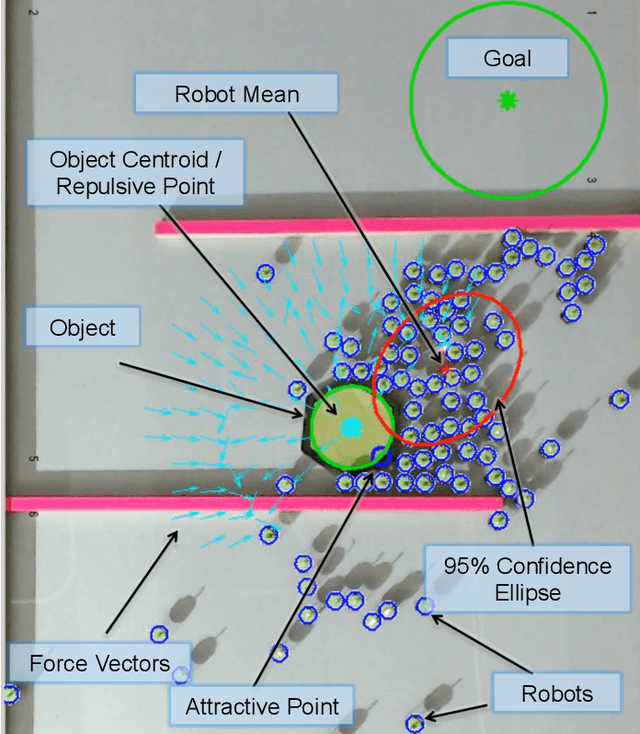

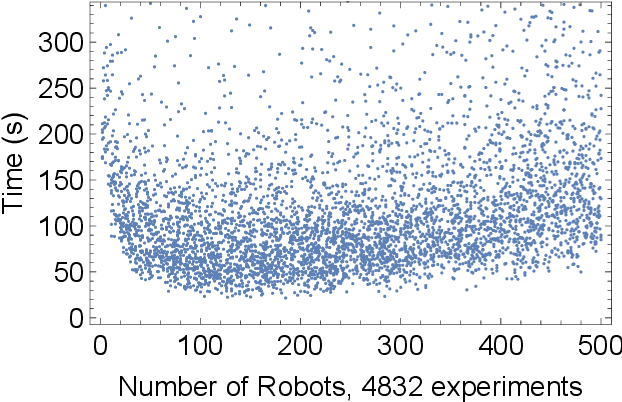

Abstract:Microrobotics has the potential to revolutionize many applications including targeted material delivery, assembly, and surgery. The same properties that promise breakthrough solutions---small size and large populations---present unique challenges for controlling motion. Robotic manipulation usually assumes intelligent agents, not particle systems manipulated by a global signal. To identify the key parameters for particle manipulation, we used a collection of online games where players steer swarms of up to 500 particles to complete manipulation challenges. We recorded statistics from over ten thousand players. Inspired by techniques where human operators performed well, we investigate controllers that use only the mean and variance of the swarm. We prove the mean position is controllable and provide conditions under which variance is controllable. We next derive automatic controllers for these and a hysteresis-based switching control to regulate the first two moments of the particle distribution. Finally, we employ these controllers as primitives for an object manipulation task and implement all controllers on 100 kilobots controlled by the direction of a global light source.
Crowdsourcing Swarm Manipulation Experiments: A Massive Online User Study with Large Swarms of Simple Robots
Feb 15, 2014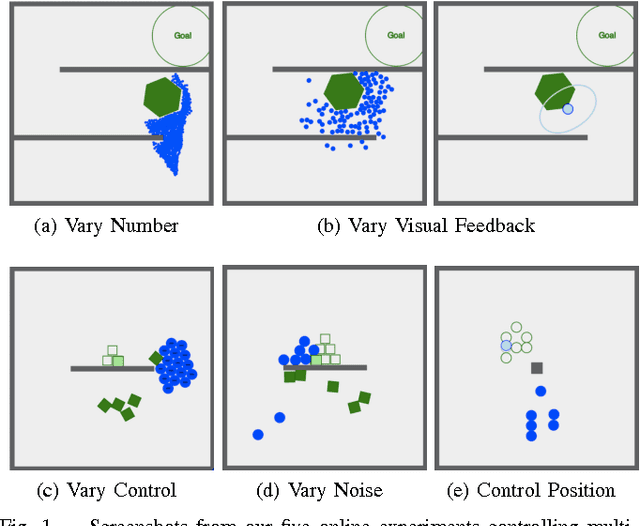
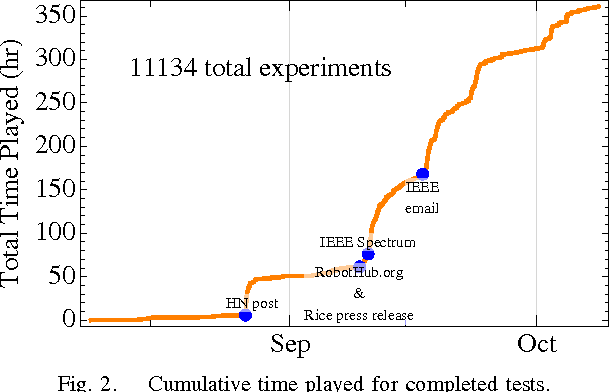

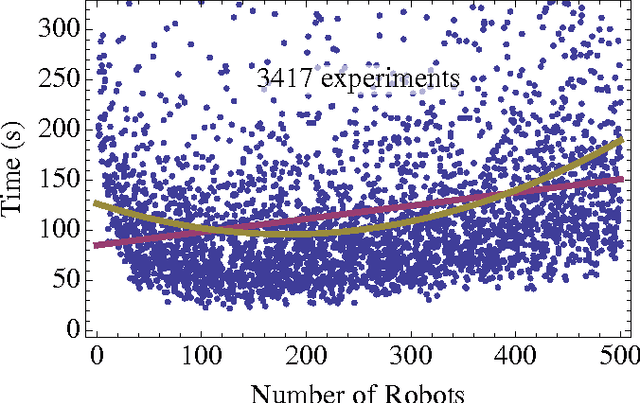
Abstract:Micro- and nanorobotics have the potential to revolutionize many applications including targeted material delivery, assembly, and surgery. The same properties that promise breakthrough solutions---small size and large populations---present unique challenges to generating controlled motion. We want to use large swarms of robots to perform manipulation tasks; unfortunately, human-swarm interaction studies as conducted today are limited in sample size, are difficult to reproduce, and are prone to hardware failures. We present an alternative. This paper examines the perils, pitfalls, and possibilities we discovered by launching SwarmControl.net, an online game where players steer swarms of up to 500 robots to complete manipulation challenges. We record statistics from thousands of players, and use the game to explore aspects of large-population robot control. We present the game framework as a new, open-source tool for large-scale user experiments. Our results have potential applications in human control of micro- and nanorobots, supply insight for automatic controllers, and provide a template for large online robotic research experiments.
 Add to Chrome
Add to Chrome Add to Firefox
Add to Firefox Add to Edge
Add to Edge